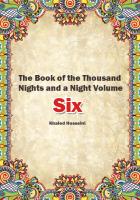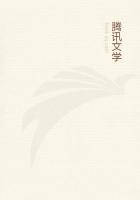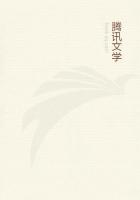It is a nice question how far one is helped or hurt by one's idealizations of historical or imaginary characters, and I shall not try to answer it fully. I suppose that if I once cherished such a passion for Pope personally that I would willingly have done the things that he did, and told the lies, and vented the malice, and inflicted the cruelties that the poor soul was full of, it was for the reason, partly, that I did not see these things as they were, and that in the glamour of his talent I was blind to all but the virtues of his defects, which he certainly had, and partly that in my love of him I could not take sides against him, even when I knew him to be wrong. After all, I fancy not much harm comes to the devoted boy from his enthusiasms for this imperfect hero or that. In my own case I am sure that I distinguished as to certain sins in my idols. I could not cast them down or cease to worship them, but some of their frailties grieved me and put me to secret shame for them. I did not excuse these things in them, or try to believe that they were less evil for them than they would have been for less people. This was after I came more or less to the knowledge of good and evil. While I remained in the innocence of childhood I did not even understand the wrong. When I realized what lives some of my poets had led, how they were drunkards, and swindlers, and unchaste, and untrue, I lamented over them with a sense of personal disgrace in them, and to this day I have no patience with that code of the world which relaxes itself in behalf of the brilliant and gifted offender; rather he should suffer more blame. The worst of the literature of past times, before an ethical conscience began to inform it, or the advance of the race compelled it to decency, is that it leaves the mind foul with filthy images and base thoughts; but what I have been trying to say is that the boy, unless he is exceptionally depraved beforehand, is saved from these through his ignorance. Still I wish they were not there, and I hope the time will come when the beast-man will be so far subdued and tamed in us that the memory of him in literature shall be left to perish; that what is lewd and ribald in the great poets shall be kept out of such editions as are meant for general reading, and that the pedant-pride which now perpetuates it as an essential part of those poets shall no longer have its way. At the end of the ends such things do defile, they do corrupt.
We may palliate them or excuse them for this reason or that, but that is the truth, and I do not see why they should not be dropped from literature, as they were long ago dropped from the talk of decent people.
The literary histories might keep record of them, but it is loath some to think of those heaps of ordure, accumulated from generation to generation, and carefully passed down from age to age as something precious and vital, and not justly regarded as the moral offal which they are.











